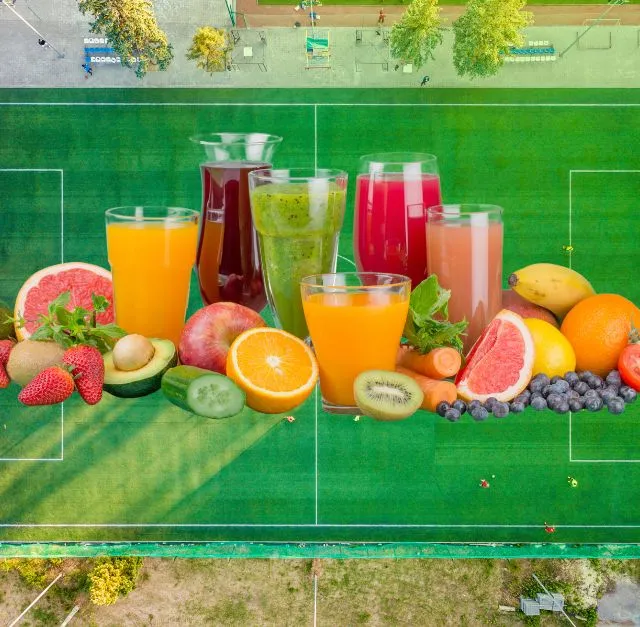Foods to Avoid When Taking Folic Acid

Avoid alcohol and foods high in unmetabolized folic acid, such as certain processed foods and supplements with folic acid fortification, when taking folic acid. Limiting these can help ensure better absorption of the nutrient.
Folic acid, a synthetic form of vitamin B9, is vital for DNA synthesis and repair, making it essential for health, particularly during pregnancy. Opting for a diet that supports folic acid absorption is crucial. While folic acid supplements are beneficial, some foods and substances can interfere with its effectiveness.
It’s important to be aware of dietary choices that might hinder the benefits of folic acid. Through careful selection of foods and an understanding of what to avoid, individuals can maximize the positive impact of their folic acid intake. This knowledge is especially valuable for those looking to support their overall health or during the critical stages of pregnancy when folic acid is most important.
Introduction To Folic Acid
Folic acid plays a crucial role in overall health and diet. This B vitamin is key for cell growth and metabolism. It helps prevent birth defects when consumed by pregnant women. Often found in supplements and fortified foods, folic acid is also present in various natural sources. Leafy greens, citrus fruits, beans, and whole grains are prime examples. These foods offer a healthy dose of this essential nutrient.
| Food Group | Examples of Folic Acid Sources |
| Vegetables | Spinach, broccoli, asparagus |
| Fruits | Oranges, bananas, melons |
| Proteins | Legumes, nuts, seeds |
| Grains | Fortified cereals, whole wheat bread |

Interactions With Other Foods
Folic acid is a vital nutrient, important for health. Certain foods can interfere with its absorption. Foods high in vitamin B12 can mask folic acid deficiency. This can lead to incorrect diagnosis and delayed treatment. Foods rich in zinc, such as meats and seafood, may also reduce folic acid absorption. Unprocessed grains and cereals often contain phytic acid, which can inhibit folic acid uptake. Alcohol consumption can cause the body to excrete folic acid, reducing its overall levels.
Tea and coffee contain compounds called polyphenols. These can hinder the body’s ability to use folic acid. Supplements should be taken on an empty stomach or with a small meal to ensure maximum benefit. It’s best to avoid these foods close to taking your folic acid supplement.
Foods High In Vitamin B12
Folic acid is vital for your body. It helps make new cells. Vitamin B12 works with folic acid. But, certain foods can disrupt this balance. Eating lots of foods with vitamin B12 might affect how your body uses folic acid.
Remember, balance is key. Neither of these should be overdone. Shellfish, liver, and fish are rich in vitamin B12. These might lead to an imbalance. People taking folic acid should eat these in moderation. Consult with a nutritionist for the best advice.
Focus on a varied diet to maintain good health. Make sure to include fruits and vegetables. They are good for you. Leafy greens are especially helpful. They have lots of folic acid.
Alcohol’s Impact On Folic Acid
Drinking alcohol can make it hard for your body to use folic acid. The body needs folic acid to stay healthy. Alcohol stops the body from absorbing folic acid well. This can lead to a shortage of folic acid in your body. Over time, too much alcohol can cause health problems.
People who drink a lot over many years might not have enough folic acid. This can lead to serious health issues. It is important to limit alcohol if you take folic acid. This helps your body get the full benefit of folic acid. It also keeps your body healthy for a long time.
Zinc-rich Foods
Folic acid is vital for your health. But, certain foods can affect how your body uses it. Zinc-rich foods might change folic acid absorption. Eating too much zinc can be a problem. Your body needs a balance.
The right amount of zinc is important. Adults should get about 8-11 mg daily. Foods like oysters, beef, and pumpkin seeds are high in zinc. Remember to eat these in moderation. Always check with your doctor for the best diet plan.
| Food | Zinc Content (mg) |
| Oysters (3 ounces) | 74.0 |
| Beef Chuck Roast (3 ounces) | 7.0 |
| Pumpkin Seeds (1 ounce) | 2.2 |
| Crab (3 ounces) | 6.5 |

Antacids And Acid Blockers
Antacids and acid blockers might hinder your body’s folic acid uptake. Eating foods rich in natural antacids is a smart move. Consider bananas, melons, and yogurt for better stomach health. These foods can ease stomach acids without affecting folic acid absorption. Almonds and ginger are also helpful. They assist in neutralizing stomach acid naturally.
Switch to herbal teas like chamomile or licorice root. These teas can soothe your stomach. Before making any dietary or pharmaceutical changes, always get medical advice. This ensures that these changes complement your folic acid intake.
High-fat Foods
Foods high in fat can alter how your body uses folic acid. Eating too much fatty food makes it harder for folic acid to work well. This is important because folic acid helps your body stay healthy.
Choosing healthier fats can improve folic acid’s benefits. Good fats are in foods like avocados, nuts, and olive oil. These fats help your body use folic acid better. Always try to pick these good fats for a healthier diet.
Unpasteurized Dairy
Unpasteurized dairy can interfere with folic acid absorption. It may pose health risks. Avoid these products to ensure the effectiveness of folic acid supplements.
Opt for pasteurized dairy options instead. They are safer and support better health. Examples include pasteurized milk and yogurt.
Conclusion
Navigating your dietary choices while taking folic acid can be simple. Remember to limit or avoid alcohol, unfortified whole grains, and certain raw veggies. By focusing on compatible foods, you’ll maximize folic acid benefits. Consult a healthcare professional for personalized advice, ensuring optimal health and well-being.
Stay informed, eat wisely, and flourish!
Frequently Asked Questions
Avoid taking folic acid with antiepileptic drugs, methotrexate, or sulfasalazine without consulting a doctor, as it may interact with these medications. Limit alcohol consumption as it can decrease folic acid absorption.
Taking folic acid daily supports cell division, DNA synthesis, and red blood cell production. It can prevent anemia and promote a healthy pregnancy, reducing the risk of neural tube defects.
Certain medications, alcohol consumption, and medical conditions like celiac disease can interfere with folic acid absorption. Cooking can also reduce the folic acid content in foods.
To avoid folic acid, limit intake of fortified foods, leafy greens, legumes, and citrus fruits. Opt for unenriched grain products and check labels for folic acid content.





